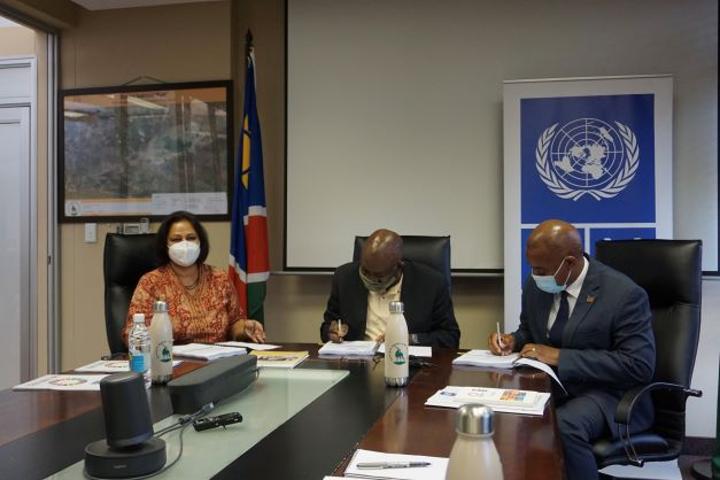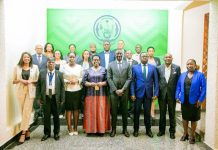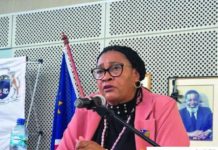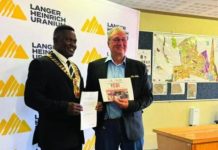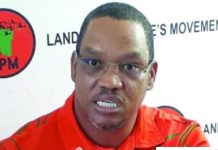Africa-Press – Namibia. Namibia’s Environment Ministry on Tuesday signed a project that is aimed at incentivising wildlife conservation through proactive management of human-wildlife conflicts (HWC) and wildlife crimes (WC) while concurrently delivering wildlife-based benefits to rural communities in targeted hotspot landscapes.
The project, coined “Integrated approach to proactive management of Human-Wildlife Conflict (HWC) and Wildlife Crime (WC) in hotspots in Namibia,” will operate through four elements, according to UNDP Resident Representative Alka Bhatia.
“The project aims to deliver through four main elements: Management, prevention and mitigation of human-wildlife conflict; Combating wildlife crime and protecting wildlife populations; Building the wildlife-based economy to promote co-existence between wildlife and people; and Knowledge management, stakeholder coordination and monitoring and evaluation,” she said.
Speaking at the launch of the project, Environment Ministry executive director Teofilus Nghitila said HWC and wildlife crime are challenges to the country’s conservation of wildlife requiring management and adaptation.
“Unfortunately, poverty in our rural areas remains a root cause of HWC and wildlife crime thus this project will target generating economic benefits for communities from wildlife related enterprises,” he said.
Three hotspot landscapes in Namibia have been identified namely North Central, which incorporates the country’s flagship Etosha National Park; North West in the Kunene Region; and North East which incorporates the Bwabwata-Mudumu National Park complex and part of the KAZA Transfrontier Conservation Area.
The launch is a culmination of a long process of consultations and engagements with stakholders since the initial idea was conceived in 2018 after Namibia’s sixth Assembly of the Global Environment Facility (GEF).
An approximate budget just over N$92 million (USD6 million) has been set aside for the project until 2026. Namibia’s Environment Ministry has partnered with its National Planning Commission, UNDP and GEF to kick-start the project.

